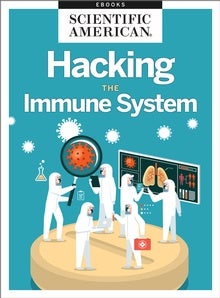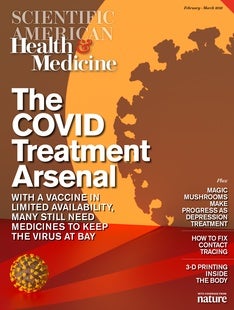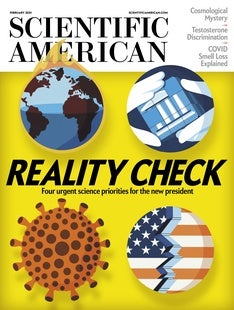 |
| January 22, 2021 |
 |
| |
| |
| |
| |
| |
| |
FROM THE STORE
 | | Hacking the Immune System The immune system is a marvel, but sometimes those defenses need help. In this eBook, we examine various ways the immune system is being manipulated to fight disease, starting with the science behind the research into COVID vaccines and treatments. We also examine cutting-edge interventions for infectious diseases beyond COVID such as a universal flu vaccine, immunotherapies for cancer and more. |  | | |
| |
FROM THE ARCHIVE
 | | | |
| |
LATEST ISSUES
 |
| |
| Questions? Comments?  | |
| Download the Scientific American App |
| |
| |




















Comments
Post a Comment